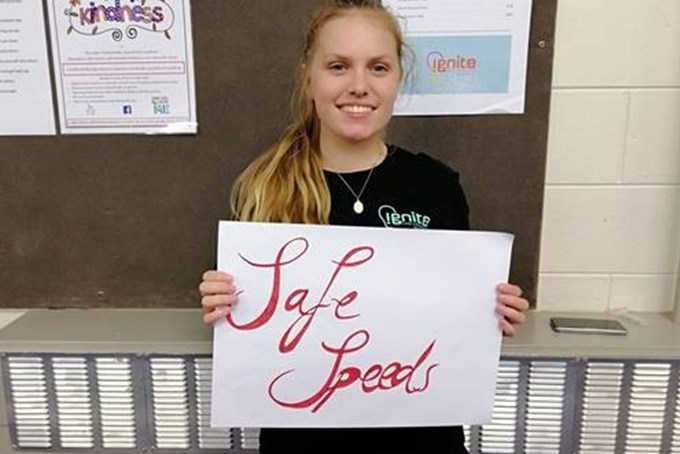Report by Donna Govorko - National Manager Students Against Dangerous Driving (SADD AOTEAROA).
Students Against Dangerous Driving exists to empower young Kiwis to prevent road trauma. SADD is a student-led, peer to peer programme that gives youth a voice to effect and inspire safe choices on the road. SADD supports and provides a platform for young people to amplify safe road user messages to their communities, becoming youth agencies for change.
Our vision: To empower young Kiwis to prevent loss on our roads. Together.
SADD offers youth-centred leadership development and behaviour changing opportunities within a road safety context. An emphasis is on good decision making and societal contribution. SADD encourages long-term, enduring partnerships and the forging of connections to impact results and achieve our collective goals of reducing harm on our roads and improved wellbeing outcomes for young people.
SADD 6 principles - encourages positive road user behaviours to reduce road trauma.
- Sober drivers
- Safe speeds
- No distractions
- Avoiding risks
- Driving to the conditions
- Building experience
New Zealand youth, supported by the SADD team, teachers, other community volunteers and road safety partners run activities and events promoting our six principles of safe road use. SADD uses best practice, evidence-based, road safety education approaches to support young Kiwis to influence their peers and wider community to positively promote safe road user behaviours.
Students use problem solving processes to develop innovative and meaningful activities to support young people to develop safer, lifelong road user behaviours. We encourage whole of community approaches to reduce the incidence and severity of harm caused by road trauma.

Road trauma is the greatest cause of harm for 15-24-year-olds in NZ. No one wants to be the recipient of the dreaded knock on the door from Police informing them that their loved one has not survived a crash. People do make mistakes while driving but people also make choices like checking a phone while driving, driving impaired, not driving to the conditions, excessive speeds that have fatal consequences. The result of a death or serious injury crash has long-lasting and devastating effects on family, friends and communities.
Speed has been a factor in more than half (53 per cent) of the fatal crashes involving young people. The 20-24 year age group had the greatest number of drivers in fatal crashes involving speeding while the 15-19 year age group had the highest proportion (36 per cent). Males have a higher proportion of involvement in speed-related crashes.
At 60kph it will take you 37m to come to a complete halt, whereas at 50kph the distance is only 28m. If those extra metres save someone's life is it really worth going a few kilometres faster?
The relationship between speed and road trauma is well established internationally and managing speed is a key focus of road safety efforts. It is one pillar of the safe system and a SADD principle. That's why SADD supports speed limit changes that help ensure a safer, more consistent speed regime nationwide, and that lead to speed limits that better reflect the design and function of the road.
Safety is a paramount priority when it comes to all modalities of transport, whether you're a cyclist, pedestrian, or driver, we all have a part to play in ensuring safety on our roads. Safe speed is an important message for the whole community. Many crashes are preventable. We urge all road users to care and choose behaviours that will keep all road users safe - turning around our tragic road safety record requires each of us to take some ownership of the problem.


